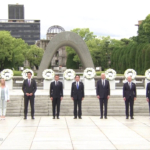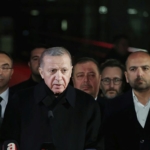For the new Myanmar of Aung San Suu Kyi is the time of “peace talks”. After the victory of the National League of Democracy (NLD) in the election three weeks ago, the leader of the movement, historical activist for human rights in the former Burma, met President Thein Sein, head of the government that, in 2011, marked the beginning of the democratic transition of the country, after 49 years of military dictatorship.
[subscriptionform]
[level-european-affairs]
The meeting lasted 45 minutes, during which they discussed the terms of a painless handover between the outgoing executive, with a civil profile but supported and appointed by the Junta, and the new government of the NLD, which won the elections of November 8 with an overwhelming majority.
Eight out of ten voters voted for the party of Suu Kyi, even if the know that the Nobel Prize for peace could not directly exercise power, because of constitutional restrictions prohibiting anyone with children of foreign nationality to become prime minister. But Aung San Suu Kyi immediately made clear its intention to play a leading role in the new government. The name of next Prime Minister has not yet been made public, but the most important decisions for the future of the country will be taken by her.
In the role of de facto leader, the Burma ”Iron Orchid ” met, on Dec. 2, the outgoing President Thien Sein and the Army Chief, Min Aung Hlaing. The meeting was held in Nay Pyi Taw, the city 320 kilometers from Yangon, which in 2005 was elevated to the role of capital. In the talk, which lasted less than an hour, Suu Kyi asked the representatives of the old power bloc to ensure a peaceful and painless handover. Sein and Hlaing offered their commitment, ensuring that there won’t be attempts of interference in the way of transition.
The concerns of the leaders of the NLD are dictated by the fact that the military retain a quarter of the seats in both houses of Parliament of Myanmar and, with them, the power of veto over constitutional reforms and key positions in the main ministries. Caution is required in consideration of the dramatic experiences of the past. The party of Aung San Suu Kyi won the election even in 1990, but the result was ignored by the military junta and, since then, Suu Kyi was under house arrest for a total period of 15 years. Confidence, since then, has become a rare commodity.
The victory of the NLD in the elections has generated excitement and new expectations on the path of democratization of the country, especially at international level. According to Miemie Byrd, professor of Burmese origin of the ‘Asia-Pacific Center for Security Studies, interviewed by Al Jazeera, however, optimism is excessive.
” My concern is that the international community’s reaction and interpretation (about elections) could exacerbate the conflicts and challenges inside Myanmar”,” she said, adding that the country still has a long way to go. “Whomever is at the leadership of the new government will be limited by the above challenges to quickly advance the reforms and progress. You just can’t get the bullock cart to go as fast as an automobile. ” The international community, she concluded, must “exercise patience and have realistic expectations” on the speed of the transition process.
Luca Marchesini
[/level-european-affairs]







